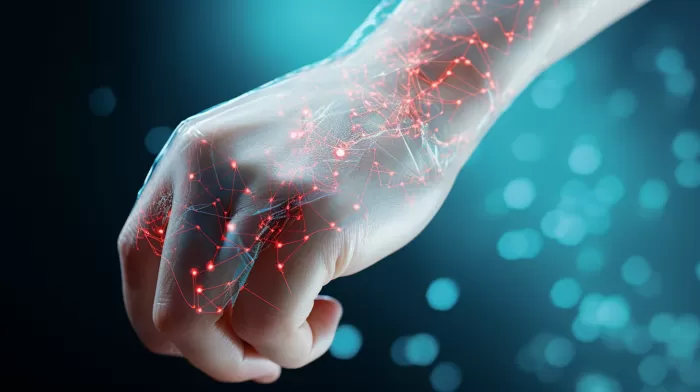Itching is a common occurrence as a result of various skin conditions, including insect bites, allergic reactions, and exposure to certain chemicals. While scratching seems to offer a moment of relief, researchers at Washington University School of Medicine in St. Louis have discovered that the best way to cope with itching in the long term is actually to avoid scratching altogether.
Scratching: Temporary Relief, But Long-Term Discomfort
When you scratch an itch, the reduction of the itchiness you experience is actually due to the slight pain you create in the process. This mild pain stimulates spinal cord nerve cells, prompting them to send pain signals to the brain instead of itch signals. However, this mild pain also results in the secretion of excess serotonin, a neurotransmitter known to dampen pain but also to stimulate increased itching.
According to researcher Zhou-Feng Chen, “The problem is that when the brain gets those pain signals, it responds by producing the neurotransmitter serotonin to help control that pain. But as serotonin spreads from the brain into the spinal cord, we found the chemical can ‘jump the tracks,’ moving from pain-sensing neurons to nerve cells that influence itch intensity.”
The Vicious Itch-Pain Cycle: Serotonin and GRPR Neurons
The human body contains specialized nerve cells called GRPR neurons, which are responsible for passing on itch signals from the skin to the brain. These neurons contain 5HT1A receptors that make them sensitive to serotonin.
This is where the issue arises: serotonin can interact with these GRPR neurons, causing itch signals to be relayed to the brain. Chen, who also directs Washington University’s Center for the Study of Itch, says, “We always have wondered why this vicious itch-pain cycle occurs. Our findings suggest that the events happen in this order. First, you scratch, and that causes a sensation of pain. Then you make more serotonin to control the pain. But serotonin does more than only inhibit pain. Our new finding shows that it also makes itch worse by activating GRPR neurons through 5HT1A receptors.”
So, the best way to deal with itchiness is actually straightforward: don’t scratch.
Alternatives to Scratching
Instead of scratching, there are various alternatives to soothe itchiness and prevent irritation to the skin. Here are some recommendations:
- Cold Compress: Applying a cold compress to the itchy area can help alleviate the sensation and reduce inflammation. Make sure to wrap the cold pack or ice in a cloth before placing it on your skin to avoid further damage.
-
Topical Treatments: Several over-the-counter creams and ointments can provide itch relief without the need for scratching. These include hydrocortisone creams, calamine lotions, and topical antihistamines like Benadryl.
-
Oral Antihistamines: If you’re dealing with itchiness due to allergies or irritants, oral antihistamines like Claritin or Zyrtec can help. Consult your healthcare provider for advice on which oral antihistamine may be best for you.
-
Temporary Distraction: Pinching, tapping, or massaging the affected area, without scratching, can provide temporary relief from the itchiness and help stop the itch-pain cycle. You can also find momentary distraction by focusing on a different sensation or activity until the itch subsides.
-
Preventative Measures: Keep your skin moisturized, as dry skin is more prone to itching. Avoid harsh skincare products, limit exposure to allergens and irritants, and maintain a cool, humidity-controlled environment to reduce your risk of itchiness.
By focusing on alternative ways to address itchiness and resisting the urge to scratch, you’ll be able to break the itch-pain cycle and breathe a sigh of relief. It might take some time to adjust your habits, but your skin will thank you in the long run.



